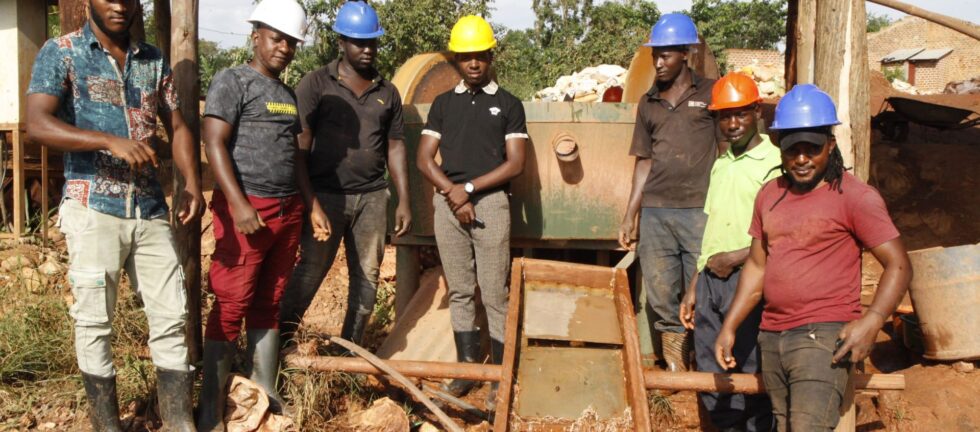Uganda is rich in natural resources, and recent discoveries—such as the massive gold deposits in Karamoja and Busia—have brought the spotlight back to its mining sector. While mineral wealth offers tremendous economic potential, history has shown that without proper planning and community engagement, mining can lead to environmental degradation, displacement, and social inequality. For Uganda to truly benefit from its mineral resources, empowering local communities in mining areas must be a central priority.
1. Formalizing Artisanal and Small-Scale Mining (ASM)
One of the most effective ways to empower locals is by formalizing artisanal and small-scale mining operations, which employ thousands across Uganda. Many locals work in informal conditions—without licenses, protective gear, or access to markets. The Ugandan government and stakeholders should focus on regularizing ASM activities by issuing licenses, providing training, and integrating small-scale miners into national mineral value chains.
Formalization allows miners to access finance, sell their minerals at fair prices, and operate under safer, regulated conditions. It also increases government revenue through taxation and reduces illegal activities that often result in resource conflicts or environmental harm.
2. Investing in Local Infrastructure and Social Services
Mining revenues and corporate investments should be channeled into developing local infrastructure, such as roads, schools, hospitals, and clean water systems. In areas like Karamoja, where poverty rates remain high, such investments are not just beneficial—they are essential.
Mining companies should be required to contribute to community development funds, overseen by local representatives, to ensure transparent and direct benefit-sharing. This builds trust and ensures that the presence of mining operations translates into tangible improvements in the quality of life for local residents.
3. Promoting Education and Skills Training
Empowering locals means equipping them with the skills to participate in and benefit from mining and related sectors. Tailored training programs in areas like geology, mineral processing, machine operation, health and safety, environmental management, and entrepreneurship should be provided.
Government, NGOs, and mining firms can partner to establish technical training centers in mining regions. By building local capacity, Ugandans can take up more skilled roles in the mining industry instead of being relegated to low-wage labor or excluded entirely.
4. Supporting Women and Youth Inclusion
Women and youth make up a significant portion of the population in Uganda’s mining communities, yet they are often marginalized. Empowerment programs should prioritize gender-inclusive policies and youth employment initiatives that provide equal access to mining licenses, training, credit facilities, and leadership opportunities.
Special attention should be given to ending child labor, improving maternal health, and supporting female entrepreneurs in mining-linked sectors like transport, hospitality, and mineral trading.
5. Strengthening Environmental and Land Rights Protections
Empowerment is incomplete without protecting the land, water, and environment that communities depend on. Mining activities should follow strict environmental standards, and Environmental Impact Assessments (EIAs) must involve meaningful consultation with local communities before mining begins.
Uganda should reinforce customary land rights and ensure that communities are not forcibly displaced without proper compensation or resettlement. Land ownership must be respected, and communities must be allowed to negotiate fair terms with mining companies operating on their ancestral lands.
6. Encouraging Local Ownership and Participation
Locals should not only work in mining—they should own stakes in it. Cooperative models, community-owned mining ventures, and local equity participation should be encouraged. Through policies that favor Ugandan ownership or partnerships, communities can generate wealth that stays in the region rather than flowing abroad.
Local procurement policies should also require mining companies to source goods and services from Ugandan businesses, fostering local entrepreneurship and job creation.
Conclusion: Mining with the People, Not Just Near Them
For Uganda’s mining boom to result in broad-based, lasting development, locals in mining areas must be at the center of decision-making and benefit-sharing. This requires a coordinated approach involving government agencies, mining companies, civil society, and community leaders.
By formalizing ASM, investing in education, respecting land rights, and ensuring environmental and economic inclusion, Uganda can turn its mineral wealth into a foundation for inclusive growth, social justice, and national transformation. Empowerment is not a favor—it’s a right, and it’s the only path to sustainable mining.


